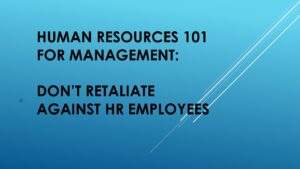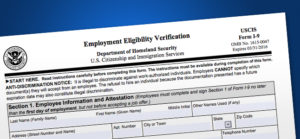 Recently, the U.S. Supreme Court handed down a decision in which it held that a West Virginia nursing home could require three separate wrongful death lawsuits be arbitrated, rather than submitted to jury trials. In all three cases, family members signed nursing home admission agreements for the elderly residents, which included provisions that all disputes be arbitrated. Despite an earlier ruling by the West Virginia Supreme Court that such agreements involving personal injury and wrongful death claims violated public policy, the U.S. Supreme Court reversed and held that the arbitration agreements were valid and enforceable. So how does this affect your rights on the job?
Recently, the U.S. Supreme Court handed down a decision in which it held that a West Virginia nursing home could require three separate wrongful death lawsuits be arbitrated, rather than submitted to jury trials. In all three cases, family members signed nursing home admission agreements for the elderly residents, which included provisions that all disputes be arbitrated. Despite an earlier ruling by the West Virginia Supreme Court that such agreements involving personal injury and wrongful death claims violated public policy, the U.S. Supreme Court reversed and held that the arbitration agreements were valid and enforceable. So how does this affect your rights on the job?
Employers have increasingly used arbitration agreements in the workplace. Generally, provisions will be included in an employee handbook, or some other document, essentially stating that in exchange for working at this company, both you and the company agree to submit legal claims to arbitration, rather than through the court system. Since most employers generally don’t sue employees, this one-sided agreement is meant to ensure that workers give up their right to have their legal claims heard before a jury. The reason routinely cited by business groups is that arbitration is less expensive than court litigation. This explanation, however, is questionable since employers pay most of the fees associated with arbitration, which can run into several thousands of dollars. The true motive for arbitration is simple. Businesses fear large jury verdicts, and arbitration simply removes juries from the process. Instead of a jury consisting of members of your community deciding a case, an arbitration is decided by an arbitrator. In employment cases, generally an arbitrator is an attorney with a certain degree of experience in employment law. The problem I have experienced, however, is that many arbitrators represent employers in their private practice, and come in with a pro-business bias. Another disadvantage of arbitration is that the arbitrator’s decision is usually final, with very limited appeal rights.
I want to make it clear that there is nothing inherently bad about arbitration, as long as both sides understand what they are agreeing to, and each side has sufficient bargaining power during negotiations. Arbitration agreements are often found in employment contracts involving executives. However, unlike an executive, the average worker does not have an attorney available to negotiate the terms of their employment. When you accept a job offer and receive a copy of an employee handbook, Texas law presumes that you’ve consented to the arbitration agreement contained in the handbook. That’s it. With that simple act you have “agreed” to waive your constitutional right to a jury trial, protected by both the Seventh Amendment to the U.S. Constitution, as well as Article 1, Section 15 of the Texas Constitution. This is a travesty, and nothing more than a legal fiction. A “legal fiction” is a rule that assumes something is true, when in fact it is false. The current state of the law involving arbitrations presume employee “consent” to one-sided agreements drafted by employers possessing all of the bargaining power, in which workers (sometimes with limited educational backgrounds and/or English proficiencies) are often unaware that these provisions exist, or that they have waived their rights.
Federal legislation (The Fairness in Arbitration Act) has been proposed to restrict the use of arbitration agreements in employment and consumer disputes, and if passed, would remedy this injustice. As expected, however, this bill has been met with stiff resistance by business groups, and its passage is not expected any time soon. As a result, workers need to be aware of mandatory arbitration policies in their employment, and understand the consequences if they someday need to assert a legal claim.
“The civil jury is a valuable safeguard to liberty.”
– Alexander Hamilton





